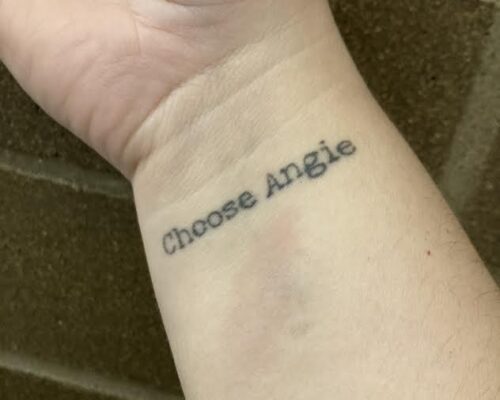We often think of self-care as bubble baths, special treats, or an online shopping spree. An Epsom salt bath with a mug of jasmine tea is definitely near the top of my self-care list.
For me, other fun self-care activities might include getting a new book from the library and spending an entire evening with it, buying art supplies I’ve been wanting to try, or experimenting with a new dessert recipe. While these are enjoyable and good for our minds and souls, self-care often looks quite different.
Meeting Basic Needs
The simplest form of self-care I practice is meeting my basic needs. I make sure to get a full night’s sleep, even when I’d rather stay up binging a TV show. I take my medications and supplements, despite sometimes feeling overwhelmed by the sheer number of pills I have to swallow. I feed myself — even if it means asking for help or ordering food because I’m too exhausted to cook. I keep a giant water bottle on my desk and another next to my bed. I stretch, even though I don’t really enjoy it.
For everyone, regardless of health status, self-care often involves the daily tasks of simply caring for our bodies.
Sometimes, self-care also means doing hard things. These harder forms of self-care are often the ones that end up being truly transformational for me. For example, I’ve had to give myself a reality check. I like to think I can do it all — that I’m somehow superhuman. I’ll convince myself I can keep up with my able-bodied friends or do as much as I did before I became chronically ill. If I’m not careful, I’ll overschedule myself, and soon my calendar is packed with commitments.
Setting Boundaries
One of the biggest acts of self-care (and self-love) is learning to say no. Canceling plans or turning down invitations can be incredibly hard for me. I don’t want to miss out, and I don’t want to let people down. A friend often reminds me (so frequently, in fact, that I got it tattooed on my wrist): “Choose Angie.” Choose yourself. You are what matters most. Sometimes, this means deciding to attend an event even if I’m tired because I need it for my mental health. But more often, it means choosing to rest.
Reaching this point hasn’t been easy. Of course, I want to participate in activities and events that seem fulfilling. But when I was constantly saying yes, I found myself physically exhausted and emotionally drained, with nothing left to give. To restore my body, mind, and spirit, I need times of rest. Enforcing this with myself has been challenging, but it pays off in so many areas of my life.
Practicing self-care also involves setting (and enforcing) boundaries. I have to hold myself accountable to my boundaries around saying no in order to get the rest I need. Sometimes, this also means setting boundaries with others. I might tell a friend that I don’t have the capacity to listen at that moment, or let my partner know I need a night to myself. I may even ask my teenager to use headphones for their video games so I can rest without the noise.
Setting boundaries is a skill I’m still developing. It’s not always easy, and it’s definitely not always fun. But just like saying no and taking care of my physical needs, these acts of self-care do far more for me than bubble baths or new books.
Self-care isn’t always fun, but it’s always worth it.
Want to Get More Involved with Patient Advocacy?
The 50-State Network is the grassroots advocacy arm of CreakyJoints and the Global Healthy Living Foundation, comprised of patients with chronic illness who are trained as health care activists to proactively connect with local, state, and federal health policy stakeholders to share their perspective and influence change. If you want to effect change and make health care more affordable and accessible to patients with chronic illness, learn more here.






